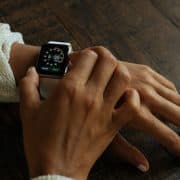7 Ways Artificial Intelligence is Improving Healthcare
Technology has had a breakthrough in t he healthcare sector and has reshaped the field. Technological innovations such as artificial intelligence (AI) has improved the way we monitor, care, and rehabilitate ourselves. An article on visualcapitalist.com shows 7 ways AI has improved healthcare in every step of a patient’s journey.
- Prevention. “Wearables and apps track vast amounts of personal data, so in the future, AI could use that information to make health recommendations for patients.”
- Early Detection. “Devices like smartwatches, biosensors, and fitness trackers can monitor things like heart rate and respiratory patterns. Because of this, health apps could notify users of any abnormalities before conditions become critical.”
- Doctors Visits. “A variety of smart devices have the potential to provide support for healthcare workers. Voice technology could help transcribe clinical data, which would mean less administrative work for healthcare workers, giving them more time to focus on patient care.”
- Test Results. “Traditionally, test results are analyzed manually, but AI has the potential to automate this process through pattern recognition. This would have a significant impact on infection testing.”
- Surgery / Hospital Visits. “Research indicates that the use of robotics in surgery can save lives. Robotics can also support healthcare workers with repetitive tasks, such as restocking supplies, disinfecting patient rooms, and transporting medical equipment, which gives healthcare workers more time with their patients.”
- Rehabilitation. “On the patient level, AI-enabled apps could be specifically tailored to individuals to track progress or adjust treatment plans based on real-time patient feedback. On an industry level, data generated from users may have the potential to reduce costs on research and development, and improve the accuracy of clinical trials.”
- Follow-ups and Remote Monitoring. “Virtual nurse apps can help patients stay accountable by consistently monitoring their own progress. This empowers patients by putting the control in their own hands. This shift in power is already happening—for instance, a recent survey by Deloitte found that more than a third of respondents are willing to use at-home diagnostics, and more than half are comfortable telling their doctor when they disagree with them.”



